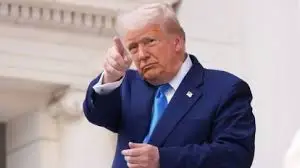Defending tariffs in US court, Trump administration says legal setback would put India–Pakistan ceasefire at risk

The Tariffs and Legal Challenges
In 2018, the Trump administration imposed tariffs of 25% on steel and 10% on aluminum imports under Section 232 of the Trade Expansion Act of 1962, citing national security concerns. These tariffs targeted multiple countries, including India and Pakistan.
India and Pakistan, along with U.S. industry groups, challenged the tariffs in court, claiming the measures were unjustified and violated international trade rules under the World Trade Organization (WTO). The core legal debate centers on whether the tariffs genuinely protect U.S. national security or serve other purposes.
Administration’s Defense: Linking Tariffs to Regional Stability
In its latest court filings, the Trump administration presented a novel defense: that the tariffs are instrumental in supporting ongoing peace efforts between India and Pakistan.
The brief argues that economic pressure from tariffs helps maintain the 2003 ceasefire agreement along the disputed Kashmir border, a longstanding flashpoint between the two nuclear-armed neighbors. According to the administration, lifting the tariffs would remove crucial leverage that encourages both countries to uphold peace and avoid escalation.
“The tariffs act as an essential tool supporting U.S. foreign policy objectives aimed at sustaining the fragile ceasefire and promoting stability in South Asia,” the filing states. “An adverse ruling would undermine these diplomatic efforts and risk renewed conflict.”
Criticism and Legal Complexities
Trade experts and critics have questioned the administration’s justification. Many argue that tariffs should be grounded strictly in national security concerns directly impacting the United States, not as instruments of foreign diplomacy.
“While geopolitical stability is important, conflating trade remedies with diplomatic strategy risks weakening established trade law frameworks,” said Dr. Nina Patel, a trade policy analyst. “It remains unclear whether these tariffs can legitimately be considered a national security measure.”
Legal commentators highlight that Section 232 mandates a direct link between trade and U.S. national security interests. The administration’s broader foreign policy rationale may face an uphill battle in court.
Impact on India-U.S. and Pakistan-U.S. Relations
The tariffs have strained relations between the U.S. and both India and Pakistan. New Delhi retaliated with duties on American goods ranging from almonds to medical devices, affecting bilateral trade.
Pakistan, under scrutiny for its role in regional security and counterterrorism, also faces challenges due to the tariffs, further complicating its relationship with Washington.
Despite these tensions, all parties have expressed interest in resolving disputes through negotiation. However, ongoing litigation in U.S. courts clouds the path forward.
What’s Next?
A court decision on the legality of the tariffs is anticipated in the coming months. If the ruling favors the administration, tariffs will remain, maintaining the economic leverage cited as key to preserving peace in Kashmir.
Conversely, a ruling against the tariffs could remove this leverage and raise concerns over potential renewed hostilities along the India-Pakistan border.
As the case progresses, Washington will have to carefully balance trade laws, diplomatic goals, and regional security challenges in South Asia — all while managing relations with two complex and adversarial partners.






